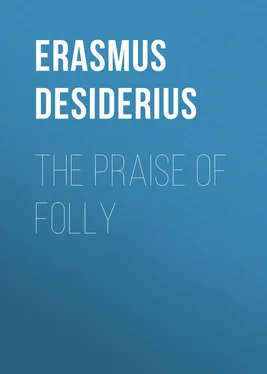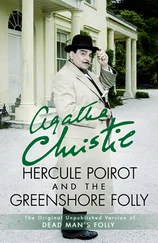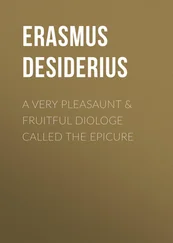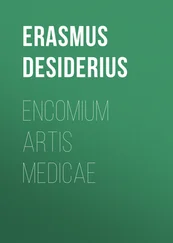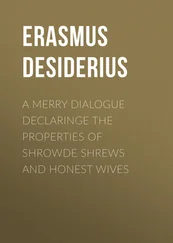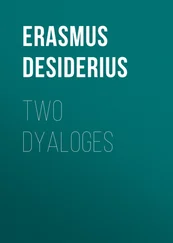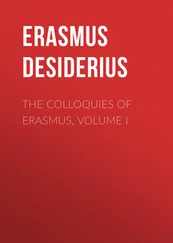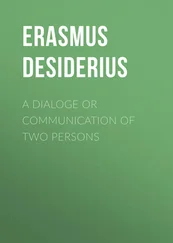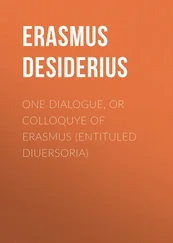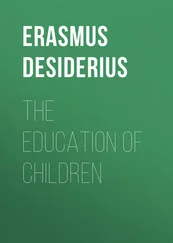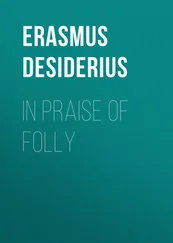Desiderius Erasmus - The Praise of Folly
Здесь есть возможность читать онлайн «Desiderius Erasmus - The Praise of Folly» — ознакомительный отрывок электронной книги совершенно бесплатно, а после прочтения отрывка купить полную версию. В некоторых случаях можно слушать аудио, скачать через торрент в формате fb2 и присутствует краткое содержание. Жанр: Словари, Религиозная литература, foreign_religion, foreign_antique, foreign_prose, на английском языке. Описание произведения, (предисловие) а так же отзывы посетителей доступны на портале библиотеки ЛибКат.
- Название:The Praise of Folly
- Автор:
- Жанр:
- Год:неизвестен
- ISBN:нет данных
- Рейтинг книги:4 / 5. Голосов: 1
-
Избранное:Добавить в избранное
- Отзывы:
-
Ваша оценка:
- 80
- 1
- 2
- 3
- 4
- 5
The Praise of Folly: краткое содержание, описание и аннотация
Предлагаем к чтению аннотацию, описание, краткое содержание или предисловие (зависит от того, что написал сам автор книги «The Praise of Folly»). Если вы не нашли необходимую информацию о книге — напишите в комментариях, мы постараемся отыскать её.
The Praise of Folly — читать онлайн ознакомительный отрывок
Ниже представлен текст книги, разбитый по страницам. Система сохранения места последней прочитанной страницы, позволяет с удобством читать онлайн бесплатно книгу «The Praise of Folly», без необходимости каждый раз заново искать на чём Вы остановились. Поставьте закладку, и сможете в любой момент перейти на страницу, на которой закончили чтение.
Интервал:
Закладка:
Desiderius Erasmus
The Praise of Folly
As I was coming awhile since out of Italy for England, that I might not waste all that time I was to sit on horseback in foolish and illiterate fables, I chose rather one while to revolve with myself something of our common studies, and other while to enjoy the remembrance of my friends, of whom I left here some no less learned than pleasant. Among these you, my More, came first in my mind, whose memory, though absent yourself, gives me such delight in my absence, as when present with you I ever found in your company; than which, let me perish if in all my life I ever met with anything more delectable. And therefore, being satisfied that something was to be done, and that that time was no wise proper for any serious matter, I resolved to make some sport with the praise of folly. But who the devil put that in your head? you'll say. The first thing was your surname of More, which comes so near the word Moriae (folly) as you are far from the thing. And that you are so, all the world will clear you. In the next place, I conceived this exercise of wit would not be least approved by you; inasmuch as you are wont to be delighted with such kind of mirth, that is to say, neither unlearned, if I am not mistaken, nor altogether insipid, and in the whole course of your life have played the part of a Democritus. And though such is the excellence of your judgment that it was ever contrary to that of the people's, yet such is your incredible affability and sweetness of temper that you both can and delight to carry yourself to all men a man of all hours. Wherefore you will not only with good will accept this small declamation, but take upon you the defense of it, for as much as being dedicated to you, it is now no longer mine but yours. But perhaps there will not be wanting some wranglers that may cavil and charge me, partly that these toys are lighter than may become a divine, and partly more biting than may beseem the modesty of a Christian, and consequently exclaim that I resemble the ancient comedy, or another Lucian, and snarl at everything. But I would have them whom the lightness or foolery of the argument may offend to consider that mine is not the first of this kind, but the same thing that has been often practiced even by great authors: when Homer, so many ages since, did the like with the battle of frogs and mice; Virgil, with the gnat and puddings; Ovid, with the nut; when Polycrates and his corrector Isocrates extolled tyranny; Glauco, injustice; Favorinus, deformity and the quartan ague; Synescius, baldness; Lucian, the fly and flattery; when Seneca made such sport with Claudius' canonizations; Plutarch, with his dialogue between Ulysses and Gryllus; Lucian and Apuleius, with the ass; and some other, I know not who, with the hog that made his last will and testament, of which also even St. Jerome makes mention. And therefore if they please, let them suppose I played at tables for my diversion, or if they had rather have it so, that I rode on a hobbyhorse. For what injustice is it that when we allow every course of life its recreation, that study only should have none? Especially when such toys are not without their serious matter, and foolery is so handled that the reader that is not altogether thick-skulled may reap more benefit from it than from some men's crabbish and specious arguments. As when one, with long study and great pains, patches many pieces together on the praise of rhetoric or philosophy; another makes a panegyric to a prince; another encourages him to a war against the Turks; another tells you what will become of the world after himself is dead; and another finds out some new device for the better ordering of goat's wool: for as nothing is more trifling than to treat of serious matters triflingly, so nothing carries a better grace than so to discourse of trifles as a man may seem to have intended them least. For my own part, let other men judge of what I have written; though yet, unless an overweening opinion of myself may have made me blind in my own cause, I have praised folly, but not altogether foolishly. And now to say somewhat to that other cavil, of biting. This liberty was ever permitted to all men's wits, to make their smart, witty reflections on the common errors of mankind, and that too without offense, as long as this liberty does not run into licentiousness; which makes me the more admire the tender ears of the men of this age, that can away with solemn titles. No, you'll meet with some so preposterously religious that they will sooner endure the broadest scoffs even against Christ himself than hear the Pope or a prince be touched in the least, especially if it be anything that concerns their profit; whereas he that so taxes the lives of men, without naming anyone in particular, whither, I pray, may he be said to bite, or rather to teach and admonish? Or otherwise, I beseech you, under how many notions do I tax myself? Besides, he that spares no sort of men cannot be said to be angry with anyone in particular, but the vices of all. And therefore, if there shall happen to be anyone that shall say he is hit, he will but discover either his guilt or fear. Saint Jerome sported in this kind with more freedom and greater sharpness, not sparing sometimes men's very name. But I, besides that I have wholly avoided it, I have so moderated my style that the understanding reader will easily perceive my endeavors herein were rather to make mirth than bite. Nor have I, after the example of Juvenal, raked up that forgotten sink of filth and ribaldry, but laid before you things rather ridiculous than dishonest. And now, if there be anyone that is yet dissatisfied, let him at least remember that it is no dishonor to be discommended by Folly; and having brought her in speaking, it was but fit that I kept up the character of the person. But why do I run over these things to you, a person so excellent an advocate that no man better defends his client, though the cause many times be none of the best? Farewell, my best disputant More, and stoutly defend your Moriae .
From the country, the 5th of the Ides of June.THE PRAISE OF FOLLY
At what rate soever the world talks of me (for I am not ignorant what an ill report Folly has got, even among the most foolish), yet that I am that she, that only she, whose deity recreates both gods and men, even this is a sufficient argument, that I no sooner stepped up to speak to this full assembly than all your faces put on a kind of new and unwonted pleasantness. So suddenly have you cleared your brows, and with so frolic and hearty a laughter given me your applause, that in truth as many of you as I behold on every side of me seem to me no less than Homer's gods drunk with nectar and nepenthe; whereas before, you sat as lumpish and pensive as if you had come from consulting an oracle. And as it usually happens when the sun begins to show his beams, or when after a sharp winter the spring breathes afresh on the earth, all things immediately get a new face, new color, and recover as it were a certain kind of youth again: in like manner, by but beholding me you have in an instant gotten another kind of countenance; and so what the otherwise great rhetoricians with their tedious and long-studied orations can hardly effect, to wit, to remove the trouble of the mind, I have done it at once with my single look.
But if you ask me why I appear before you in this strange dress, be pleased to lend me your ears, and I'll tell you; not those ears, I mean, you carry to church, but abroad with you, such as you are wont to prick up to jugglers, fools, and buffoons, and such as our friend Midas once gave to Pan. For I am disposed awhile to play the sophist with you; not of their sort who nowadays boozle young men's heads with certain empty notions and curious trifles, yet teach them nothing but a more than womanish obstinacy of scolding: but I'll imitate those ancients who, that they might the better avoid that infamous appellation of
Читать дальшеИнтервал:
Закладка:
Похожие книги на «The Praise of Folly»
Представляем Вашему вниманию похожие книги на «The Praise of Folly» списком для выбора. Мы отобрали схожую по названию и смыслу литературу в надежде предоставить читателям больше вариантов отыскать новые, интересные, ещё непрочитанные произведения.
Обсуждение, отзывы о книге «The Praise of Folly» и просто собственные мнения читателей. Оставьте ваши комментарии, напишите, что Вы думаете о произведении, его смысле или главных героях. Укажите что конкретно понравилось, а что нет, и почему Вы так считаете.
